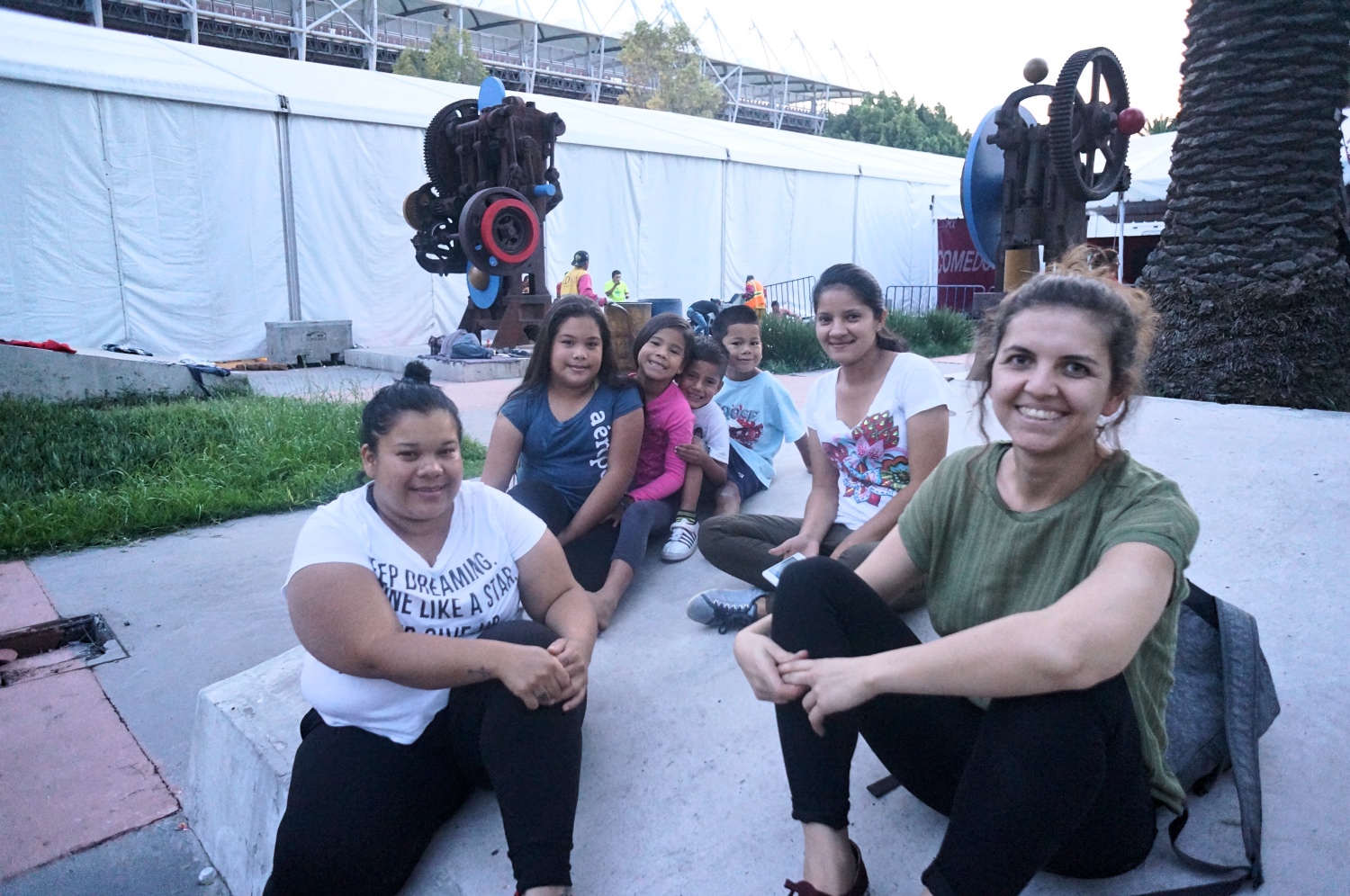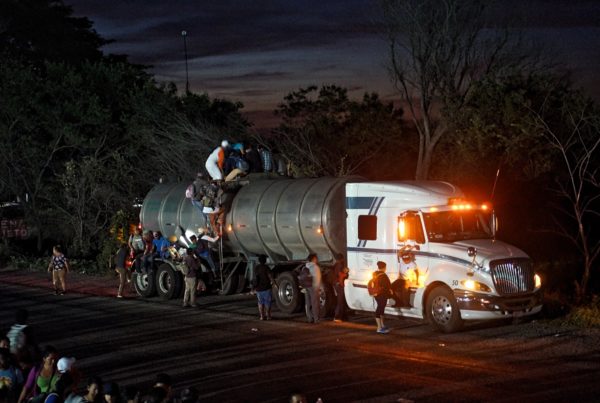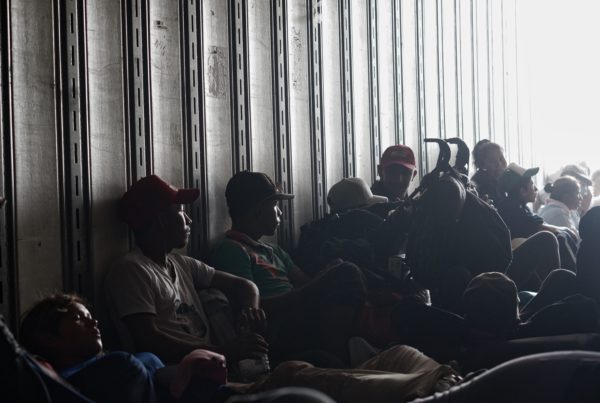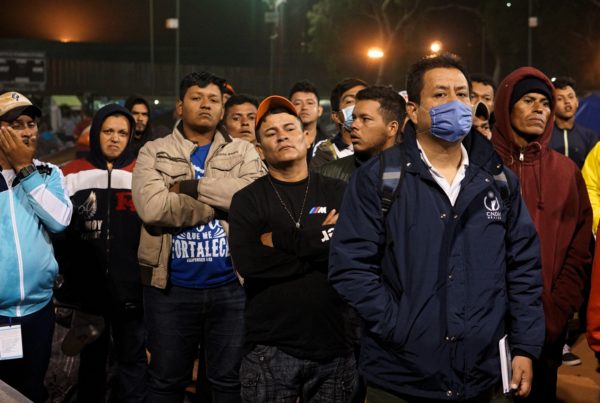While the migrant caravan is in Mexico City, I spent many days visiting the Magdalena Mixhuca Sports City where the migrant caravan was hosted. One afternoon, a young woman strikes up a conservation with me. Her name is Maria and she combs her daughter’s hair while she speaks to me.
She is a single mum, aged 27, travelling alone with three children, aged 2, 7, and 11. This is her fourth attempt to go to the US.
When Maria was 9 months old, her mother moved to the US and gave Maria to her sister. Maria was raised by her aunt until she was 15 when her biological mother asked her to live with her in the United States. She didn’t explain to me how she arranged her travel to the US, but Maria and her brother lived in Houston for a while until they were deported.
She returned to Honduras where she started a family. Since then she has tried to go to the United States three times, each time without her children. On one occasion she rode the dangerous freight train, La Bestia. In the third attempt she was kidnapped by a cartel for two months. During this time, she did not see the light and she never knew if it was day or night. The ransom was set for US$5,000 and one day before her family paid, she was rescued by the Mexican authorities. When she returned to Honduras she was so thin that her friends did not recognize her.
During this time the father of Maria’s children took care of the children in his house in Honduras, but he neglected his responsibilities. The children did not eat and he started heavily using drugs. He sold all Maria’s property and he slept with her cousin. When Maria returned there was only one bed left in the entire house.
Since January of this year she has been trying to find a job to take care of her children.
“Don’t call us, we’ll call you,” prospective employers told her.
She has not had a job all year. Instead, she sat on the sidewalk of her house and begged for food for her children. Her mother who lives in the US sends her US$50 dollars each week to support her.
Maria’s mother is lonely and wants Maria and the children to live with her in the United States. She sent Maria money to travel by bus and find the caravan in Guatemala. However, Maria is afraid to continue on the trip. She’s afraid for her children.
“If my mother wanted me more, she would send money to pay a coyote,” Maria says, with a frown.
Andrea walks and travels by bus with her 4-year-old child. She is divorced from her husband but they live together. When she heard about the caravan she joined, leaving her two-year-old child with her ex-husband, the child’s father. Now Andrea’s ex-husband is thinking of joining the caravan but he is waiting to see how the journey pans out.
Andrea says that yesterday a family she knows paid a coyote who picked them up in Mexico City. Andrea and her ex-husband are waiting to see if they should pay a coyote or continue with the caravan. I later see her in Queretaro with her young boy. She has elected to stay with the caravan for now.
Andrea and Maria tell me that the two men who are sitting next to us took a bus to Monterrey to continue the trip with 4 more friends but when they arrived, operatives from a drug cartel chased them and caught their 4 friends. The two men who survived and made it back to Mexico City are “dead scared” and are going to return to Honduras.




With the nation (and the world) focused on the daily events taking
place along the U.S./Mexican border, thought you might find the
following musical tribute of interest…
The Walls came tumblin’ down! Build bridges not walls…
https://soundcloud.com/hillipsand/the-walls-came-tumblin-down-jericho
The song is a tribute to Maria Meza and her children, who fled
Honduras